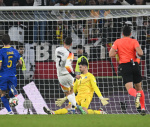You are here
Europe should lead on climate action
May 13,2019 - Last updated at May 13,2019
BRUSSELS — Since the massive mobilisation effort that preceded the 2009 Conference of the Parties (COP15) in Copenhagen, the world has begun translating words and intentions into real action on climate change. European leadership, from government, civil society and business, has played a pivotal role in driving progress. Given how much remains to be done, such leadership must continue, and become stronger.
The successes of the last decade should not be underestimated. In 2010, when I was starting out as Europe’s climate commissioner, only green radicals shared the objective of net-zero emissions. Many deemed the 80-95 per cent emissions-reduction goal set by the European Union’s first long-term strategy to be too ambitious.
At that time, few would have believed that within 10 years China would emerge as a renewables giant, or that Volkswagen and the Danish shipping company Maersk would set the goal of achieving carbon neutrality by 2050. Volkswagen’s simultaneous announcement that it will produce 22 million electric vehicles over the next decade would have seemed similarly farfetched.
In today’s world, however, such shifts are becoming the new normal. Green financing is gaining in popularity, people are changing their diets and consumption habits, mayors are taking action to cut air pollution, coal-fired power plants are closing down and low-carbon technologies are developing faster than expected. This is a welcome change, but it is still not enough: scientists, including at the Intergovernmental Panel on Climate Change (IPCC), continue to warn that time is running out to stave off the worst effects of climate change.
Now, people around the world are demanding climate action more forcefully than ever. Many have been moved by Greta Thunberg, a 16-year-old Swedish activist who went from staging a climate strike outside the Swedish parliament to speaking at the United Nations and the World Economic Forum in Davos. Across Europe, polling data reveal widespread support for ambitious climate policies. And an overwhelming majority of Europeans, across the political spectrum, recognise that supra-national cooperation on climate makes sense.
Last month, in an effort to deliver the needed action, UN Secretary General António Guterres revealed his plans for a climate summit this September in New York. In doing so, he called on participants to put aside their differences and offer “concrete realistic plans” to keep the increase in global temperature within 1.5°C of preindustrial levels, per the IPCC’s latest report.
At a time of political turbulence, reflected in the rise of populist parties in many countries, this is a bold proposition. The world should embrace it, and Europe should lead the way.
When it comes to solutions, Europe is ahead of the curve. For example, my home country, Denmark, which has been asked to lead talks on energy at the UN summit, has integrated vast quantities of wind power into its electricity grid. Sweden, which will run an industry WorkStream with India, has created the world’s first fossil-fuel-free steel plant. And progress is hardly limited to northern Europe: Romania boasts Europe’s largest onshore wind farm, Poland is producing electric buses and Austria is leading when it comes to green buildings.
But, as European leaders increasingly recognise, it is time to hit the accelerator. That means making the transition to a low-carbon economy, with net-zero emissions by 2050, central to the European narrative.
Doing so would send a powerful signal to Europe’s citizens that their leaders are listening, while encouraging other countries to deliver on their own commitments, made as part of the 2016 Paris climate agreement. As the world’s largest market, the EU has considerable influence and leverage. If it scales up green finance, renewable energy and climate-friendly transport over the next decade, the rest of the world will quickly get the message that the low-carbon transition is unavoidable, and accelerating.
After this month’s European Parliament elections lies a golden opportunity to establish a green transition that benefits all as a shared European goal. Ideally, that will happen by September, when the UN conference is held. With a smart, coherent and unified strategy, the EU could provide a model for responsible economic growth in the 21st century. But the clock is ticking.
Connie Hedegaard served as European commissioner for climate action from 2010 to 2014. Copyright: Project Syndicate, 2019. www.project-syndicate.org












